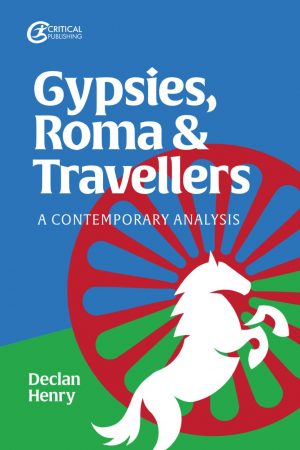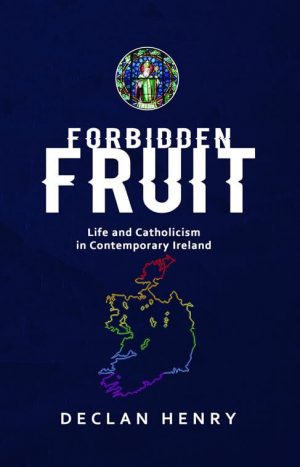John O’Connor, a proud Irish Traveller, purchased six acres of land at Ayletts Farm, known as Green Acres, in Halstead, near Braintree, Essex. He and his family have made it their home since April 2025. John was born in England and traces his ancestral roots back to Enniscorthy, County Wexford. Green Acres currently hosts four mobile homes, each occupied by different members of the family. The land is surrounded by hedgerows and secured with an electric gate and security cameras, providing both privacy and peace of mind.
During my visit, I focused on John, his wife Bridie, and two of their three children—Mary (20) and Johnny (15). John is a recovering alcoholic and has bipolar disorder, for which he has been hospitalised on several occasions during manic episodes. His condition has remained stable for the past two years with medication, including sertraline and lithium. Since moving to Green Acres, he has felt less pressurised and now works full-time as a self-employed roadway surfacing contractor, specialising in block paving and tarmacking, a business he has successfully developed.
Alongside his work, John has a passion for horse trading and breeding, which he feels is beneficial for supporting his mental health. The O’Connor family has a long-standing connection with horses, and John has extensive knowledge of them, particularly thoroughbreds and other high-quality riding horses. He attends the Appleby Horse Fair annually, an event that is not just about horses but also an opportunity to meet friends and extended family, making it a key date in the Gypsy, Roma, and Traveller (GRT) calendar. John has bought and sold many horses, mainly as a hobby at Appleby, where thoroughbreds and other riding horses are regularly sold for between £7,000 and £25,000, although he sold most of them without making a large profit. While there are currently no horses at Green Acres, he hopes to expand the site in the future with stables and equestrian facilities, as one of the attractions of buying Green Acres was that it already had planning permission for a stable block and training ring.
During my visit, I also discussed with the family the challenges Travellers face in society, particularly discrimination, exclusion, and negative stereotyping. They spoke candidly about how these experiences affected their lives while travelling prior to settling at Green Acres. Violence and hate crimes against GRT communities are significantly underreported due to fear and mistrust of the police, and racism and discrimination contribute to disproportionately high rates of mental health problems, including bipolar disorder, depression, and anxiety. Suicide rates among Traveller men are nearly seven times higher than the general population, driven by stress, trauma, displacement, and a lack of belonging. Alcohol misuse and polysubstance abuse are also common, often stemming from these same pressures.
Before moving to Green Acres, the family travelled frequently, often staying only briefly in places before being moved on by local councils or the police. At times, they spent nights in Tesco car parks, lay-bys, or any available green space. While they value their culture and travelling lifestyle, they have always wanted a permanent base where they could maintain their traditions while also accessing essential services such as healthcare and education. Bridie explained that life on the road often lacked structure, with basic necessities like showers requiring trips to public swimming baths. Born into an Irish Traveller family in Wales, she lived this way for most of her life, but she has since settled comfortably at Green Acres, where they now have full electricity, running water, toilets, and showers. Bridie feels she has the best of both worlds—stability while living in the countryside, surrounded by land and nature.
The family has also made friends with neighbours in the area, with John and Bridie appreciating the warm welcome they received. It is clear from meeting them that they are friendly and courteous people, and it is easy to see why neighbours would feel comfortable dropping in for tea. I can confirm that Bridie makes a wonderfully strong cup, using none other than the renowned Irish Barry’s brand. She is very house-proud, and the main mobile home, which serves as their living space, was spotless and tastefully furnished. She explained that Travellers traditionally prefer not to cook in the same living unit where they sleep, so her kitchen is housed in a wooden hut outside.
Bridie fears having to return to the uncertainty of life on the move if they do not receive planning permission from Essex County Council to remain at Green Acres. For the family, this decision is crucial: it will respect their culture, lifestyle, and human rights while ensuring consistent access to healthcare. Bridie experiences depression and anxiety and takes antidepressants, but since moving to the farm, her new GP has been able to lower her dosage due to the calming and stable environment.
John, Bridie and Johnny O’Connor
Bridie spoke warmly of the twins and Mary, describing them as polite and well-mannered, and explained that she had always placed great emphasis on good manners, firmly believing that “manners will take you all over the world”—wise words indeed. The O’Connor family is very close-knit, with strong bonds extending to nearby relatives, and Bridie recalled that when the children were younger, there was always an adult available to care for them if she and John needed to go out. Patrick and Johnny, the 15-year-old twins, may not look much alike—Patrick towers over Johnny—but Bridie showed me a photo of them and noted that despite their physical differences, the brothers remain very close.
Mary, aged 20, is independent and confident. She enjoys driving one of the family cars and has a close relationship with her mother, while also making her own choices and leading a life that reflects her maturity. She has been in a stable relationship for the past two years and describes herself as happy and content. Although she experienced health issues in childhood, including asthma, she has grown into a fine young woman—someone John and Bridie speak of with deep pride.
During my visit, Johnny spoke positively about his life on the farm. He described it as a “nice, beautiful place,” and said he enjoys “the fresh air, flowers, grass, and trees.” He was open when discussing his education. Johnny has an Education, Health and Care Plan (EHCP) and is currently awaiting placement in a specialist school in Essex. When asked about his future, Johnny said he hopes to get into property development. He does not currently take medication for his ADHD, explaining that it made him feel sick and he prefers to manage without it.
Father and Son
Johnny spends his time helping his family on the farm. In the evenings, he enjoys playing on his PlayStation, watching Netflix, and sometimes going to the cinema in Braintree. When I jokingly asked if his father was generous or stingy with pocket money, he laughed, explaining that he doesn’t get a regular amount, but his father gives him money when he is going places. He was also very complimentary about his mother’s cooking, saying she makes a lovely curry. While I was there, he asked, “Mam, what’s for dinner tonight?” and gave her a thumbs-up when she replied she was preparing salmon and new potatoes. Johnny has a witty and comical personality without being cocky or cheeky.
Bridie is a devout Catholic and attends weekly Mass at Our Lady Queen of Peace Catholic Church in Braintree. She has always done her best to raise her children in the faith, and the rosary beads Johnny wears suggest that her efforts have succeeded. The family recently returned from Medjugorje, a town in Bosnia and Herzegovina where apparitions of Our Lady have been reported since 1981.
Mary, Johnny, and Patrick are really looking forward to their trip to Tulleys’ Farm near Gatwick for this year’s ‘Shocktober’ Halloween Festival. With haunted trails and scare zones, it’s an experience Johnny can’t wait to enjoy. But for them, the real fun is in the friendships — catching up with friends, meeting new ones, enjoying the live music, and soaking up the festival atmosphere filled with great food and entertainment.
John and Bridie are law-abiding and have never been in trouble with the police. They are deeply family-focused and proud of their identity and culture, committed to passing these values on to their children and future grandchildren. They value traditions, even if some are considered old-fashioned—for example, men as breadwinners and women responsible for running the home and raising the children.
John has always loved nature and the countryside and has a strong vision for preserving Green Acres. He has worked hard at making the land ecologically diverse. He has planted hundreds of trees, including birch, laurel, olive, and conifers, and installed bird boxes on various trees. A keen conservationist, he is tidy and organised, evident in the tasteful arrangement of the mobile homes and the well-maintained surroundings. This counters negative stereotypes often wrongly associated with the Gypsy, Roma, and Traveller community.
John introduced me to a neighbour, Lucy, a prominent member of the parish council. She confessed that she had grown up hearing the stereotype that Travellers “have light fingers and are prone to stealing.” However, after getting to know John and his family, she witnessed firsthand that their home and farm were immaculately maintained and that they actively contributed to the local community. Over time, her personal experience with them completely overturned the old stereotype and was replaced with trust.
Despite the considerable effort John and his family have made to settle and integrate into the local area, Essex Council has refused his application for planning permission to continue living in mobile homes on the land. The reason given for the refusal is that Aylett’s Farmhouse is a designated Grade II listed heritage site. However, this status applies specifically to the historic building itself—not necessarily to the surrounding land.
John does not accept this as the sole reason for the refusal. He referred to the “elephant in the room”—his identity as a Traveller—as the real, underlying factor influencing the council’s decision. Over the years, the land surrounding Aylett’s Farmhouse has undergone various changes in ownership and use, as evidenced by estate maps and deeds dating back to the 18th century. The presence of mobile homes or alternative land use does not diminish the heritage value of the site. If it did, John questions why the council is currently considering planning permission to build two hundred new houses on the opposite side of Aylett’s Farm.
Based on observations of how well John maintains his land and the surrounding environment, it is clear he is contributing positively to the area. His care and attention to the property make him an asset to the local community—not a hindrance. Responsible stewardship of land near heritage sites is important, and John’s efforts reflect a respectful and thoughtful approach to living alongside a piece of Essex’s history.
John also spoke about a “twist in the soul”—a phrase he uses to describe the subtle but unmistakable shift in attitude that can occur when figures of authority discover someone is from a Travelling background. He described it as a change in a person’s inner world—a shift in values, perspective, or emotional tone. While laws and human rights are often quoted with conviction, John feels they are not always applied with equal fairness when it comes to Travellers.
Importantly, John is not alone in this fight. He has the backing of neighbours and members of the local parish council, many of whom have written letters of support to Essex Council. He has also gathered documentation from health and education professionals, which speak not only to the complex challenges he and his family face, but also to the positive contribution he has made to the area and the stability he has created for his family. It is now hoped that his appeal will be considered with fairness and humanity. The question remains: will the council listen—not just to the evidence, but to the voices of the community? Will they show understanding and dignity, and grant John the planning permission he needs to continue living in a way that honours his birthright, authenticity, and culture? Only time will tell.
Mobile Homes at Green Acres
Inside one of the Mobile Homes
Photographs by Declan Henry













